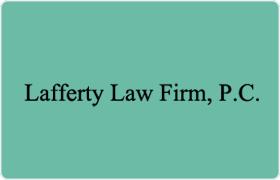 Sumner County, TN Reorganization Lawyers
Sumner County, TN Reorganization Lawyers
Sponsored Law Firm
-
 x
x

Click For More Info:
-
Lafferty Law Firm, P.C.
1321 Murfreesboro Pike Suite 521 Nashville, TN 37217» view mapBankruptcy & Debt Over 30 Years Of Experience
Susan S. Lafferty is a CPA and Attorney who enjoys helping people with financial problems. She is located in Nashville, TN where she has lived for over 30 years.
800-936-9071
Not enough matches for Sumner Reorganization lawyer.
Below are all Sumner lawyers.
Lawyers
1-10 of 29 matches
Corporate, Patent, Contract, Bankruptcy
Juvenile Law, Family Law, Divorce & Family Law, DUI-DWI
Credit & Debt, Banking & Finance, Trusts, Wills & Probate, Dispute Resolution
Estate, Employee Rights, Business, Bankruptcy & Debt, Accident & Injury



 Susan Lafferty Nashville, TN
Susan Lafferty Nashville, TN Practice AreasExpertise
Practice AreasExpertise